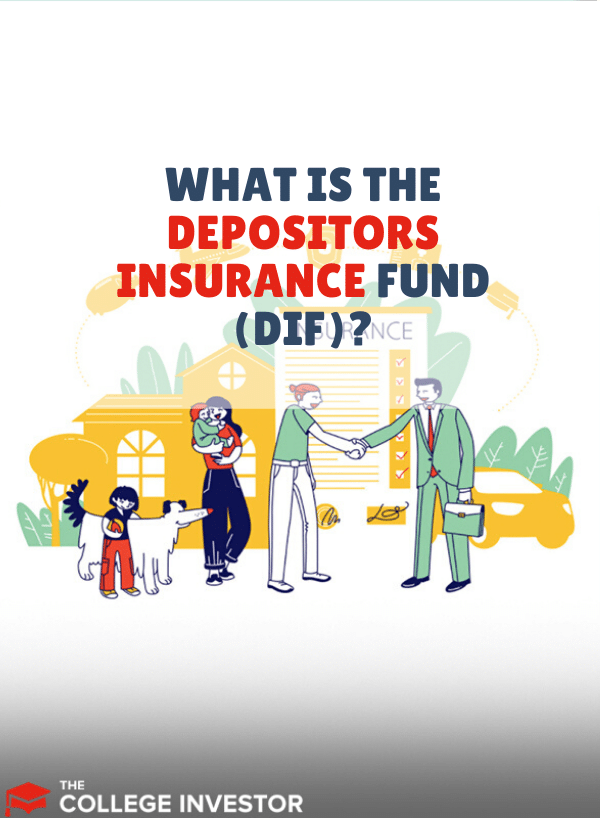
In the early 1930s, a run on banks left some people who had deposited money in local banks without access to their life savings. To prevent such a run from happening again, the Bank Act of 1933 established the Federal Deposit Insurance Corporation (FDIC) which protects deposits up to $250,000 in checking, savings or money market accounts.
The Depositors Insurance Fund was one of the first precursors to the FDIC. It was established in 1932 to protect depositors in Massachusetts in the event of a bank run. Today, DIF is a type of deposit insurance that protects balances above $250,000.
Understanding how the Depositors Insurance Fund (DIF) works can be valuable if you’re facing a liquidity event such as the sale of a home, the sale of a business or a large cash windfall that would push your savings above $250,000. Here’s what you need to know about it.
What Is The Depositors Insurance Fund (DIF)?
The Depositors Insurance Fund (DIF) is a Massachusetts based company that provides deposit insurance on bank accounts with more than $250,000 in them. All banks that are chartered in Massachusetts must be members of the DIF. The DIF protects savers in the event that a bank fails. If the bank where you hold your deposits fails, deposit insurance will make you whole.
DIF insures a few hundred banks in Massachusetts, but many of the banks it insures allow out of state individuals to set up a deposit account. Having a DIF-insured account can be very useful if you need to insure excess deposits above the FDIC limits.
How Does DIF Compare To FDIC Insurance?
The Depositors Insurance Fund and FDIC insurance work together to protect savers money. While the FDIC insures all bank deposits up to $250,000, the DIF insures balances above $250,000. In the United States, all legitimate banks are FDIC insured. By contrast, only a few banks can boast that they are protected by the DIF.
Since a large majority of individuals (and even many businesses) have less than $250,000 in cash assets, FDIC insurance is sufficient for most of us. Even people with 6-12 month emergency funds and a house down payment fund are unlikely to have more than $250,000 in cash.
Plus, the FDIC insurance rules allow individuals to have insurance at multiple banks as long as the banks are unique. And you can also increase your FDIC insurance limits by opening multiple accounts at the same bank. For example, you could have both an individual account and a joint account with your spouse, each with its own $250,000 of FDIC protection.
If you do your banking at a credit union, it will almost certainly have an equivalent insurance called the National Credit Union Share Insurance Fund which is administered by the National Credit Union Administration (NCUA). But DIF is an insurance product that is offered above and beyond FDIC or NCUA insurance.
Do People Really Need Extra Deposit Insurance?
If you’re trying to figure out how the Depositors Insurance Fund fits into your financial plan, you may realize that it doesn’t. Most people don’t have more than $250,000 in cash that they are worried about insuring. Usually finding a high yield savings account with low fees is more important than finding an account that is DIF-insured.
However, there may be a few times in life when the extra protection could come in handy. For example, if you sell a paid-off house (depending on where you live), you could have hundreds of thousands or even a million dollars flooding into your checking account all at one time.
A DIF-insured bank account could keep that money protected until you place it somewhere more permanent. Likewise, someone who sells a business will have a large cash holding until they are able to properly invest the money.
Do I Need A DIF-Insured Bank Account?
In most cases, you won’t need a bank account with DIF insurance. Instead, most people will want bank accounts with no fees and high yields. These two account features tend to be more important than large insurance coverage.
However, if you're one of the few that has more than $250,000 in deposits to insure or you're looking at a liquidity event (like selling a home or business for example), finding a DIF-insured bank could be a smart move.
Thankfully, you don't have to live in Massachussetts to open an account with a DIF-member bank. Many allow residents of any state to open online accounts. For example, with BankProv, you can open an account with unlimited insurance and no monthly service fees in minutes. Read our review of BankProv.

Robert Farrington is America’s Millennial Money Expert® and America’s Student Loan Debt Expert™, and the founder of The College Investor, a personal finance site dedicated to helping millennials escape student loan debt to start investing and building wealth for the future. You can learn more about him on the About Page or on his personal site RobertFarrington.com.
He regularly writes about investing, student loan debt, and general personal finance topics geared toward anyone wanting to earn more, get out of debt, and start building wealth for the future.
He has been quoted in major publications, including the New York Times, Wall Street Journal, Washington Post, ABC, NBC, Today, and more. He is also a regular contributor to Forbes.
Editor: Clint Proctor
